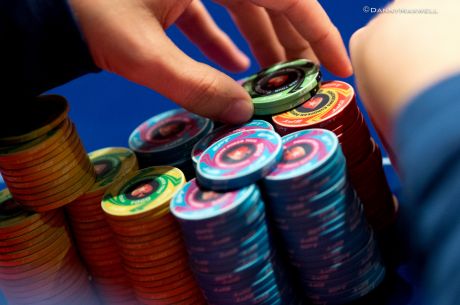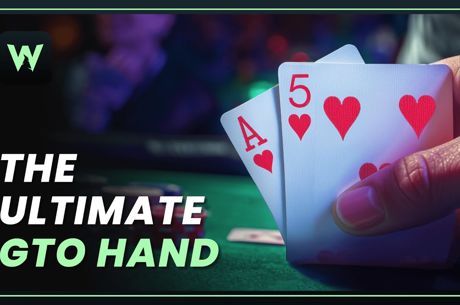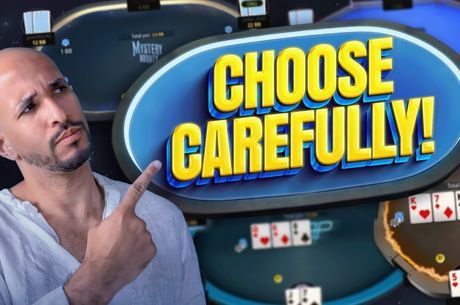Seven Tips for Success at Tavern Poker

The three most common venues for poker are casinos, home games, and online. However, there’s a fourth venue that presents its own special set of challenges, but gets little attention in the usual poker media outlets — bar poker, also known as tavern poker.
I moved a few years ago from the center of the poker universe, Las Vegas, to Asheville, North Carolina, which is a poker desert. We do have Harrah’s Cherokee casino about an hour away with its small poker room. But other than that, professionally run live poker requires an all-day drive to places like Maryland, West Virginia, or Mississippi. That means in between trips to Cherokee, I have had to scratch my poker itch with home games that some friends organize.
In the last few months, however, a bar poker club started weekly tournaments in town. I’ve been participating in many of those games, and have noticed ways in which they differ from any other poker I’ve played before.
The fundamental difference setting bar poker apart from other venues is that very little is at stake. Bar poker leagues have to be careful not to violate laws prohibiting unlicensed gambling.
The general legal definition of gambling is a game of chance, with prizes of value, and “consideration,” meaning what you have to pay in order to play. The fact that a measure of skill is required to play well does not remove poker from the realm of games of chance, in the eyes of the law. And if there were no prizes at all, few people would play.
What sets bar poker apart from every other form of poker, then, is the “consideration” element — you don’t have to pay to play. That fact has both direct and indirect consequences. The main indirect effect is that the prize pool is small, made up of just what the sponsoring bar puts up in the hope that the game will attract people who will come and buy drinks while they play.
The most prominent direct effect is that people feel they have nothing to lose. If you’ve ever wondered how poker would look if you had nothing at risk if you lose, and little or nothing to gain if you win, find yourself a local tavern poker game and give it a try. It’s an ongoing embodiment of that very experiment.
To be sure, there are some decent prizes to be had through large organizations like the , which is the outfit that runs my local game. If you accumulate enough points in a poker “season” through a combination of frequent attendance and finishing high in the weekly local tournaments, you can earn a seat in a regional tournament. Do well in that, and you might earn a seat in the annual national finals in Vegas, where you can win entries into the following year’s World Series of Poker.
A chance for a free WSOP seat is great, right? But you need to think this through in advance. Will you be able and willing to travel to the regional event if you qualify? And if you do well there, will you be able and willing to take time off of work and spend money on flights, hotels, and food in Las Vegas, all for the chance to win a WSOP seat? If not, then don’t enter the local events fooling yourself that it’s an easy road to the WSOP.
You need to be honest with yourself in advance about whether you are going to take it seriously and commit to a substantial investment of time — and, eventually, money — to get to one of the few big prizes at the end of the rainbow. If not, then you just have to decide if you think playing for grins and the social experience is a worthwhile use of your time. (Some pubs also give token prizes to weekly winners — t-shirts and baseball cap, for example.)
Should you decide to participate, either in an earnest chase for a prize of real value or just for fun, I have a few pieces of advice.
1. Be prepared for the games to be self-dealt
By and large, tavern games are going to be self-dealt. In Las Vegas, I briefly participated in a tavern poker series that had off-duty professional dealers, working for tips only. That’s because Vegas is full of unemployed and under-employed dealers. However, every other bar poker venue that I have heard about has the players taking turns shuffling and dealing. The dealer button actually does mean just that in these settings.
2. Be prepared for loose, poor play
In these games you’ll witness some of the worst, loosest, most incomprehensible poker play you’ve ever seen. It’s rather like the play-money side of online poker sites. There are two driving forces behind this. First, these games attract people with the least poker experience — because once you’ve played for real money, it’s hard to find it enjoyable playing for nothing. Second, when there is literally nothing to lose, players are quick to move all in, or call an all-in bet with some of the weakest holdings imaginable.
3. Know that bluffing is generally a bad idea
The obvious implication of the above is that you should turn down your bluffing frequency to nearly zero. If you are heads-up in a pot with a player who has shown himself to have a little discernment about when to call a big bet, then fine — a bluff might be worth trying. But generally, you should expect every bet you make to be called by somebody.
4. Be ready for an incredibly fast structure
My local club runs two games every Tuesday night, with the first tournament at 7:30, and the second at 10:00. That means that there’s time to play out a two-table hold’em tourney in two hours, with a 30-minute break for pizza (which is provided free, one little perk of playing). You can just imagine how fast the blinds have to increase to keep to that schedule. That pace means that you have to be willing to make your all-in moves earlier and with weaker holdings than standard tournament strategy would dictate.
5. Be nice to the novices
People who came to the bar with no idea that there was poker going on will decide to join just for the heck of it, even if they have never played before. Be super nice to them. Get them hooked on how easy and fun it is, and you may get to take cold, hard cash from them when they’re ready to move on to the real games in either the nearest casino or somebody’s living room.
6. Help out the tavern
You can help keep the game viable by being a good customer of the sponsoring establishment. This is a point of advice that’s tricky for me to follow, because I don’t drink, but I at least buy a couple of their bottles of water at roughly 12 billion percent markup.
7. Don’t count on strict rule enforcement
In these games you shouldn’t expect strict adherence to the rule book. In keeping with the geared-to-beginners vibe of the whole endeavor, nobody makes too big a deal out of exposed cards, out-of-turn action, string raises, talking about the hand in progress, and other conventions that apply everywhere else. A tavern poker game is absolutely the worst place to be a rules Nazi. Let things slide that you wouldn’t and shouldn’t in other settings.
Whether you decide to tackle the marathon of playing that it will take to work your way up to one of the really substantial prizes, or decide to participate just for some cheap entertainment, I think keeping in mind the above points will help you succeed and have more fun in the unusual world of tavern poker.
Photo (still): “.”
Robert Woolley lives in Asheville, NC. He spent several years in Las Vegas and chronicled his life in poker on the “” blog.
Want to stay atop all the latest in the poker world? If so, make sure to get PokerNews updates on your social media outlets. on Twitter and find us on both and !









